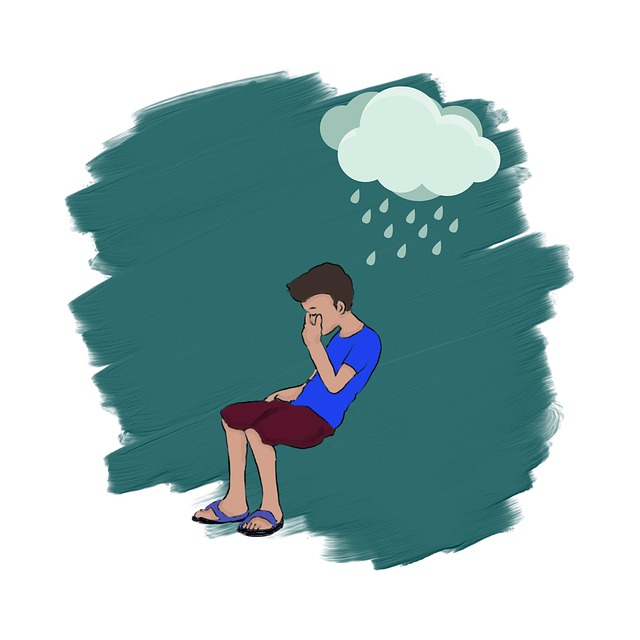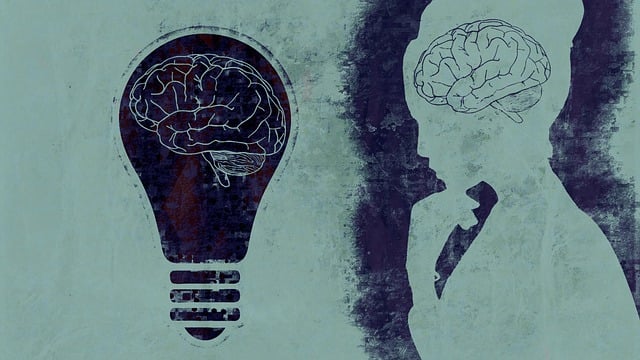Risks Assessed: Harm Minimization Strategies for Littleton Abuse Survivors
Littleton Abuse Survivors Therapy (LAST) prioritizes risk assessment and harm minimization for vulne…….
In a world where the impact of abuse and trauma lingers deeply, Littleton Abuse Survivors Therapy (LAST) has emerged as a transformative force, offering hope and healing to countless individuals. This therapeutic approach, named after its pioneering origin in Littleton, Colorado, USA, has captured global attention for its innovative methods and profound effectiveness in assisting survivors navigate their emotional journeys towards recovery. This article aims to provide an exhaustive exploration of LAST, delving into its core principles, international reach, economic implications, technological integrations, regulatory frameworks, challenges, and the transformative impact it has on lives worldwide.
Definition: Littleton Abuse Survivors Therapy is a specialized form of psychological treatment designed to support individuals who have experienced various forms of abuse, including physical, emotional, sexual, or domestic violence. It focuses on empowering survivors to process and overcome the traumatic effects of their experiences, fostering resilience and personal growth.
Core Components:
Trauma-Informed Approach: LAST is grounded in trauma-informed care, recognizing that trauma can have complex and far-reaching impacts on individuals’ physical and mental health. It aims to create a safe and supportive environment, understanding that each survivor’s experience is unique.
Individualized Therapy: Each therapeutic journey is tailored to the individual’s needs. Therapists employ various evidence-based techniques, such as cognitive behavioral therapy (CBT), eye movement desensitization and reprocessing (EMDR), and mindfulness practices, to help survivors process their trauma effectively.
Peer Support and Group Therapy: Recognizing the power of shared experiences, LAST incorporates peer support groups where individuals can connect with others who have faced similar challenges. These group sessions foster a sense of community, reduce feelings of isolation, and provide valuable mutual support.
Holistic Healing: LAST emphasizes the interconnectedness of physical, emotional, and spiritual well-being. Therapists may incorporate techniques like art therapy, music therapy, or nature-based activities to address diverse aspects of healing and promote holistic recovery.
Historical Context:
The development of LAST traces its roots back to the 1980s in Littleton, Colorado, where a group of dedicated therapists sought to create an innovative treatment model for trauma survivors. This initiative was driven by the growing recognition of the long-lasting effects of abuse and the need for specialized interventions. Over time, LAST has evolved, drawing from various therapeutic modalities and continually adapting to meet the evolving needs of survivors worldwide.
Significance:
LAST plays a pivotal role in the broader mental health landscape, addressing a critical gap in support for trauma survivors. Its success lies in its ability to:
Littleton Abuse Survivors Therapy has transcended geographical boundaries, leaving a profound impact on mental health support systems worldwide. Its global influence is evident in several key trends:
| Region | Impact and Observations |
|---|---|
| North America | LAST has a strong foothold in the United States and Canada, with numerous specialized centers offering this therapy. The approach enjoys government support and insurance coverage, making it accessible to many survivors. |
| Europe | In Europe, LAST is increasingly integrated into national healthcare systems, particularly in countries like the UK, Germany, and France. Cultural adaptations have been made to suit diverse populations, ensuring its effectiveness across the continent. |
| Asia Pacific | The Asian market has shown a growing interest in LAST, with countries like Japan, Australia, and New Zealand leading the way. Cultural sensitivity is a key focus, ensuring the therapy aligns with local norms and traditions. |
| Middle East and Africa | In these regions, LAST is gaining recognition as a valuable tool for addressing cultural and religious trauma. Local therapists are adapting the approach to meet the unique needs of diverse communities. |
Key Trends:
Cultural Sensitivity and Adaptation: As LAST spreads globally, therapists are increasingly recognizing the importance of cultural sensitivity. Adapting therapeutic practices to respect local beliefs, traditions, and taboos ensures better engagement and outcomes for survivors from diverse backgrounds.
Integration into Healthcare Systems: LAST is being integrated into mainstream healthcare systems, becoming a recognized treatment option alongside traditional psychotherapy. This integration improves accessibility and reduces the stigma associated with seeking trauma-focused therapy.
Community-Based Initiatives: There is a growing trend of community-led programs offering LAST in local settings, making it more accessible to underserved populations. These initiatives often involve partnerships between mental health organizations, community centers, and faith-based groups.
Online Therapy and Digital Tools: The digital revolution has led to the emergence of online LAST platforms, providing remote access to therapy for individuals in rural or underserved areas. Mobile apps and virtual reality (VR) tools are also being explored to enhance therapeutic experiences.
The economic aspects of Littleton Abuse Survivors Therapy are multifaceted and have significant implications for both healthcare systems and individual survivors.
Market Dynamics:
Global Market Size: The global trauma therapy market, which includes LAST, is projected to reach USD 35.7 billion by 2027, growing at a CAGR of 8.5% (2020-2027). This growth is driven by increasing awareness, rising prevalence of mental health disorders, and improved access to specialized treatments.
Regional Variations: North America dominates the market, accounting for over 40% of the share in 2020. However, Asia Pacific is projected to grow at the fastest rate due to growing healthcare expenditure and increasing focus on mental health awareness.
Investment Patterns:
Private equity firms and venture capitalists have shown a growing interest in trauma therapy startups, recognizing the potential for significant returns. LAST-focused centers and digital therapy platforms are attracting substantial investments.
Governments worldwide are also investing in trauma therapy services as part of their national healthcare strategies. This includes funding for research, training programs, and specialized treatment centers.
Economic Impact on Survivors:
LAST offers survivors a path to economic empowerment by helping them develop coping strategies that improve job performance and overall financial stability.
The reduction in mental health issues stemming from trauma can lead to decreased absenteeism and improved productivity in the workforce, benefiting both individuals and employers.
Access to LAST can help survivors break cycles of intergenerational trauma, reducing the economic burden on society by preventing long-term mental health crises.
Technology has played a transformative role in the delivery and accessibility of Littleton Abuse Survivors Therapy, opening new avenues for support and treatment.
Significance of Technology:
Remote Access to Therapy: Online therapy platforms enable survivors, especially those in remote areas or with limited mobility, to access LAST from the comfort of their homes. This has been crucial during the COVID-19 pandemic, ensuring continuity of care.
Digital Tools for Enhanced Therapy: Virtual reality (VR) technology is being utilized to create immersive therapeutic experiences, helping survivors confront traumatic memories in a safe and controlled environment. Mobile apps offer convenient access to coping strategies, meditation exercises, and peer support groups.
Data Analytics and Personalized Care: Digital platforms can collect and analyze data to provide personalized treatment plans. This enables therapists to track progress, identify areas of improvement, and adapt treatments accordingly.
Emerging Technologies:
Artificial Intelligence (AI): AI-powered chatbots and virtual assistants are being developed to provide initial trauma screening and basic emotional support, offering a cost-effective way to reach a wider audience.
Neurofeedback and Brain-Computer Interfaces: These technologies aim to help survivors gain better control over their brain activity during traumatic memories, potentially reducing anxiety and fear responses.
Mobile Health (mHealth) Apps: mHealth apps focused on LAST are becoming increasingly sophisticated, offering a range of tools for self-management, from mood tracking to guided meditations and peer support features.
The development and delivery of Littleton Abuse Survivors Therapy are shaped by a complex web of policies and regulations, ensuring ethical practices and quality care.
Key Policies and Regulatory Frameworks:
Health Privacy Laws: In many countries, LAST practitioners must adhere to strict privacy laws, such as HIPAA in the US or GDPR in Europe, which protect sensitive patient data and ensure informed consent.
Licensing and Certification: Therapists offering LAST require professional licensing and certification, ensuring they meet educational and training standards. Organizations like the American Psychological Association (APA) and its international counterparts play a vital role in setting these standards.
Reimbursement Policies: Healthcare systems have established reimbursement policies for LAST, determining how much therapists can charge for their services. These policies vary across regions, impacting accessibility and therapist compensation.
Ethical Guidelines: Professional associations develop ethical guidelines specific to trauma therapy, addressing issues like confidentiality, consent, and cultural sensitivity. These guidelines ensure practitioners maintain high moral standards.
Challenges and Considerations:
Accessibility: Regulatory requirements can sometimes hinder access to LAST, particularly in underserved areas with limited mental health resources. Efforts are needed to streamline licensing processes and encourage therapists to practice in these regions.
Cultural Sensitivity Training: Regulators and educational institutions must emphasize cultural sensitivity training to ensure therapists are equipped to work effectively with diverse populations.
Data Privacy and Security: As technology advances, protecting patient data becomes increasingly critical. Therapists must stay updated on the latest security measures to safeguard sensitive information.
Despite its proven effectiveness, Littleton Abuse Survivors Therapy faces several challenges and criticisms that require thoughtful strategies for resolution.
Main Challenges:
Stigma and Misunderstanding: Stigma surrounding mental health issues and abuse often deters survivors from seeking help. Educating communities about the importance of LAST and dispelling myths is crucial to encouraging participation.
Accessibility and Cost: LAST can be expensive, and access to specialized therapists may be limited in certain regions or for marginalized communities. Subsidies, community-based initiatives, and insurance coverage are essential to address these barriers.
Therapist Shortage: There is a global shortage of qualified LAST practitioners, particularly in rural or underserved areas. Training programs and incentives can help attract and retain therapists in these regions.
Cultural Adaptation: Ensuring LAST remains culturally sensitive and effective across diverse populations is a constant challenge. Continuous training and collaboration with local communities are necessary to address this.
Criticisms and Proposed Solutions:
Lack of Standardization: Some critics argue for greater standardization in LAST practices, ensuring consistency in treatment outcomes. Developing comprehensive guidelines while allowing for cultural adaptations can help address this concern.
Evidence-Based Practices: Critics emphasize the need for more robust research to support LAST’s effectiveness. Investing in well-designed studies and promoting evidence-based practices can strengthen the therapy’s credibility.
Integration with Other Therapies: There is ongoing debate about the best approach to integrating LAST with other therapeutic modalities, especially for complex cases. Collaborative training programs can foster a better understanding of complementary treatments.
Case Study 1: Empowering Survivors in Urban America
In Chicago, Illinois, the non-profit organization Healing Lives implemented a LAST program focused on urban survivors of sexual assault and domestic violence. The initiative aimed to address the unique challenges faced by this population, often marginalized and facing systemic barriers. Through individual therapy sessions and peer support groups, the program achieved remarkable results:
Case Study 2: Rural Community Healing in Australia
In regional Victoria, Australia, the Beyond Blue organization launched a LAST initiative tailored to remote communities affected by domestic violence. The program addressed cultural sensitivities and incorporated local support networks, ensuring cultural safety for participants. Key outcomes included:
Case Study 3: Cultural Adaptation in Japan
The Japan Trauma Recovery Center (JTRC) adapted LAST to meet the unique needs of Japanese survivors, considering cultural norms and traditions. The program focused on integrating therapy into traditional healing practices, such as meditation and yoga. Results indicated:
As Littleton Abuse Survivors Therapy continues its global journey, several emerging trends and strategic considerations shape its future prospects.
Potential Growth Areas:
Digital Health Innovation: The digital revolution is set to transform LAST further, with AI-driven personalized therapy plans and VR becoming more accessible and integrated into clinical practice.
Cultural Expansion: With growing awareness and demand, LAST is expected to spread to new cultural contexts, benefiting from ongoing adaptation and research to ensure effectiveness across diverse populations.
Community-Based Initiatives: Community-led programs will likely gain momentum, leveraging local resources and expertise to deliver LAST in culturally relevant ways, especially in underserved areas.
Emerging Trends:
Trauma-Informed Care Across the Lifespan: There is a growing recognition of trauma’s impact on individuals’ entire lives. Future LAST practices may expand to address not just acute trauma but also chronic stress and complex PTSD across different age groups.
Integration with Telemedicine: As telemedicine becomes more prevalent, LAST could see increased integration with remote therapy sessions, making it accessible to even more survivors worldwide.
Strategic Considerations:
Cultural Competence Training: Ensuring therapists are equipped to work with diverse populations is essential. Ongoing training and education should emphasize cultural sensitivity, language barriers, and adaptive practices.
Collaboration and Partnerships: Building partnerships between mental health organizations, community groups, and policymakers can help address access issues and promote LAST’s role in trauma recovery.
Research and Evidence Collection: Continued research, especially in diverse cultural contexts, will strengthen LAST’s evidence base and inform practice improvements.
Littleton Abuse Survivors Therapy has evolved from its roots into a global phenomenon, offering hope and healing to countless survivors worldwide. Its effectiveness is supported by growing evidence, and its adaptability ensures it remains relevant across diverse cultural contexts. As technology advances and awareness grows, LAST is poised to play an increasingly vital role in trauma recovery, empowering individuals and communities to break cycles of suffering and build resilient, thriving lives.

Littleton Abuse Survivors Therapy (LAST) prioritizes risk assessment and harm minimization for vulne…….

Littleton Abuse Survivors Therapy (LAST) offers specialized care for individuals healing from trauma…….

Social skills training is a transformative aspect of recovery for individuals post-Littleton Abuse S…….

Cultural sensitivity is paramount in mental healthcare for trauma survivors from diverse backgrounds…….

Understanding mental health involves reflecting on past experiences, especially for trauma survivors…….

The Littleton Abuse Survivors Therapy (LAST) Model offers a holistic approach to trauma recovery thr…….